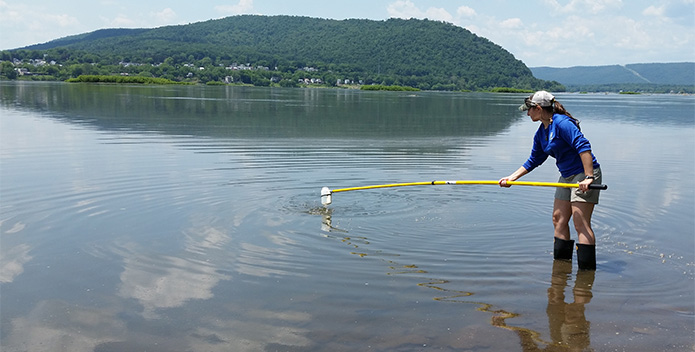The following first appeared in the York Dispatch.
As a young boy, my curiosity about the woods, critters, and water of the Back Mountain region of northern Luzerne County made for an exciting and formative time. As I observed the fish and habitat around the lake I lived next to, the intricacies and interrelationships of the land and water came into focus.
It was 7th grade biology class where it all seemed to come together. It is when science class went from the solar system and earth's geology to the science of living things and their relationship to their surroundings. I was fascinated by the sense of discovery brought on by learning how chemistry, biology, and physics intertwine to affect our environment and even ourselves. It led me to becoming the water quality scientist I am today.
The Chesapeake Bay Foundation's work in Pennsylvania translates science into action—be it educating people on the challenges and means of cleaning up 19,000 miles of polluted rivers and streams, advocating for meaningful legislation, or installing practices on the ground that reduce pollution and restore our streams.
The legacy of coal mining, intensive agriculture, and urbanization are why our streams are polluted. How do we know this? Science.
Science also shows us solutions. Without science, we wouldn't know that preserving and restoring streamside and streetside trees, among other nature-based solutions, are the most effective and least costly ways to improve stream health.
Science has shown that for about every dollar invested in keeping pollution out of the water through things like trees, around $27 is saved in treatment costs in order to meet human health standards. That's important, because if you're like most Pennsylvanians, you get your drinking water from surface waters like the Conestoga and Susquehanna.
Science also says that these same solutions reduce nuisance flooding, help cleanse the air, preserve and protect wildlife, and increase property values and farm productivity.
Sadly, without science, decision-makers could be susceptible to false solutions that waste taxpayer money and don't solve the problem. Without science our waters have, and may yet again, be contaminated with raw sewage, choked by dirt and algae, and even catch fire. As a scientist, it's my duty to help others understand why and to prevent it from happening again.
But we scientists must do better at letting others know the relevance science has in our lives.
Now, more than ever, we must make it clear that science informs the basic structures of our society. Our medicine, our technologies, our food, our water—all that and more depend on sound science.
Congress has before it a proposed budget from the Administration for fiscal year 2018 that would eliminate the federal Chesapeake Bay Program. It is an initiative started in the mid-1980s that supports scientific studies of the rivers and streams that go to the Bay. It explores solutions, coordinates actions, and supports programs and partners that work with everyone from farmers to communities to restore our waters to health.
Like in the early days as a young man exploring nature in Luzerne County, when it comes to talking and teaching about the relevance of science to water quality in our daily lives, I'll leave no stone unturned.
So should you.




